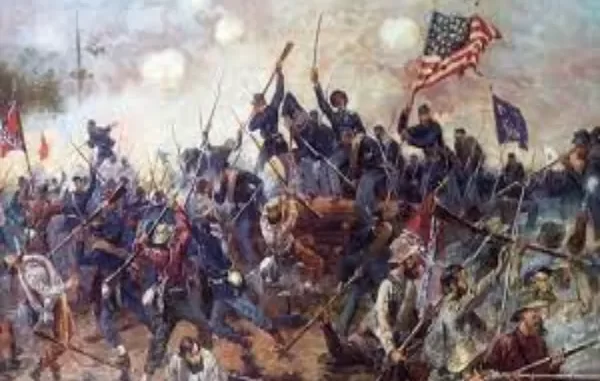
History is often thought of as a dry and boring topic. But it’s actually filled with a lot of fascinating facts and stories! From strange laws to incredible inventions, here are 8 surprising fun facts about history that you may have never heard before. From ancient times to modern day, you’ll be amazed at how much history has to offer. So, let’s take a trip back in time and learn something new!
The Strange Origins of 8 Historical Figures
- Julius Caesar: Julius Caesar was born in 100 BC in Rome to a prominent family of the patrician class. His father, Gaius Julius Caesar, was a praetor who governed the province of Asia, and his mother, Aurelia Cotta, was of noble birth. As a young man he was a great military leader, conquering much of what is now western Europe. He also made significant political reforms that led to the downfall of the Roman Republic and the rise of the Roman Empire.
- Napoleon Bonaparte: Napoleon Bonaparte was born in 1769 in Ajaccio, Corsica. He was the son of Carlo and Letizia Bonaparte and was the fourth of eight children. He was educated at the military academy in Brienne, France, and soon rose to become one of the most powerful men in Europe. His ambition and military successes made him Emperor of France in 1804, and he is known for his campaigns and reforms across Europe.
- Cleopatra: Cleopatra was born in 69 BC in Egypt and was the last active ruler of the Ptolemaic Kingdom. She was the daughter of Ptolemy XII Auletes and was a descendant of the Macedonian general, Alexander the Great. She was a powerful leader who used her wit and charm to gain influence over the Roman Empire. She is remembered for her love affairs with Julius Caesar and Mark Antony.
- Martin Luther: Martin Luther was born in 1483 in Germany and was a monk in the Augustinian order. He was a theologian and was a major figure in the Protestant Reformation. He wrote the 95 Theses in 1517, which criticized the Catholic Church’s practices and sparked the Protestant Reformation. He is best known for his doctrine of justification by faith alone, which he proclaimed at the Diet of Worms.
- Queen Elizabeth I: Queen Elizabeth I was born in 1533 in London to King Henry VIII and Anne Boleyn. She was the last of the Tudor monarchs and reigned for 45 years. She was a patron of the arts, and her reign was known as the Elizabethan era. She was an important figure in England’s history and is remembered for her religious toleration and expansion of the navy.
- Charlemagne: Charlemagne was born in 742 in Herstal, Belgium, and was the eldest son of Pepin the Short and Bertrada of Laon. He was crowned King of the Franks in 768 and went on to become the first Holy Roman Emperor.
- He was an important figure in the Middle Ages and was known for his military campaigns and administrative reforms.
- Christopher Columbus: Christopher Columbus was born in 1451 in Genoa, Italy. He was an explorer and navigator who set off to find a western route to the Indies. He ended up discovering the New World in 1492, which would later be colonized by the Spanish. He is remembered for his courage and determination, and his voyage has been credited with changing the course of world history.
- Mahatma Gandhi: Mahatma Gandhi was born in 1869 in Porbandar, India. He was a lawyer and political leader who led the Indian independence movement against British colonial rule. He was an advocate of nonviolence and civil disobedience and is remembered
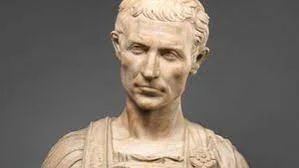
8 Important Events That Changed World History
- The American Revolution (1765-1783): The American Revolution was a conflict between the Thirteen American Colonies and Great Britain, resulting in the formation of the United States of America. This event is widely considered to have had a major impact on world history, as it was the first successful revolt against a European colonial power and helped to inspire uprisings across the globe.
- The Industrial Revolution (1760-1840): The Industrial Revolution was marked by rapid technological advancement and increased mechanization of production. This period of time saw great advances in transportation, communications, and production technology, and it completely changed the way people worked and lived. The Industrial Revolution had a tremendous impact on the world, ushering in a new era of economic growth and prosperity.
- The French Revolution (1789-1799): The French Revolution was a period of political turmoil in France that eventually led to the overthrow of the monarchy and the establishment of a republic. This event changed European politics and had a lasting impact on the development of modern democracy.
- The Scientific Revolution (1543-1687): The Scientific Revolution was a period of great advancement in science and technology. It saw the development of new theories and ideas about the natural world, as well as the invention of new instruments and tools for studying it. The Scientific Revolution had a profound impact on the way people viewed the world and helped to shape modern science.
- The Napoleonic Wars (1799-1815): The Napoleonic Wars were a series of conflicts fought between France and a coalition of European powers. This period of time saw the rise of Napoleon Bonaparte, who was a major figure in European politics and military strategy. The Napoleonic Wars had a profound effect on the course of European history.
- The American Civil War (1861-1865): The American Civil War was a conflict between the Union and Confederate States of America. This event was a major turning point in US history and had a significant impact on the development of the nation.
- World War I (1914-1918): World War I was a major conflict fought between the Allied Powers and the Central Powers. This event changed the course of world history, with the establishment of new nations, the emergence of new ideologies, and the end of the old European order.
- World War II (1939-1945): World War II was an even larger conflict than World War I, involving many of the same countries and many more. This event had a huge impact on world history, with the end of the Axis powers, the establishment of the United Nations, and the emergence of the United States and the Soviet Union as the two major superpowers.
8 Amazing Scientific Discoveries From History
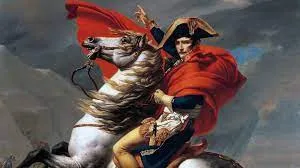
- The Discovery of Penicillin: In 1928, Alexander Fleming made one of the most significant scientific discoveries of all time when he discovered penicillin, the world’s first antibiotic. Penicillin revolutionized modern medicine, allowing doctors to cure bacterial infections in a way that was previously impossible.
- The Discovery of X-Rays: In 1895, German physicist Wilhelm Röntgen discovered X-rays, a type of electromagnetic radiation. X-rays allowed doctors to diagnose many conditions that otherwise would have been difficult to detect, such as broken bones and tumors.
- The Discovery of DNA: In 1953, James Watson and Francis Crick made one of the most significant discoveries of the 20th century when they discovered the structure of DNA. Their discovery revolutionized biology, giving scientists a better understanding of how living organisms are created and how they evolve over time.
- The Discovery of the Big Bang Theory: In 1927, astronomer Edwin Hubble discovered that the universe is expanding, which led to the development of the Big Bang Theory. This theory states that the universe began as a single, incredibly dense point and has been expanding ever since.
- The Discovery of Radioactivity: In 1896, French physicist Henri Becquerel discovered radioactivity, a phenomenon in which certain elements emit energy in the form of radiation. This discovery revolutionized physics and chemistry, and it led to the development of nuclear energy.
- The Discovery of the Theory of Relativity: In 1905, Albert Einstein published his groundbreaking Theory of Relativity. This theory revolutionized the field of physics, offering a new way of understanding the nature of space, time, and gravity.
- The Discovery of Insulin: In 1921, Canadian physicians Frederick Banting and Charles Best discovered insulin, a hormone that helps regulate blood sugar levels in people with diabetes. This discovery allowed doctors to treat diabetes in a way that was previously impossible.
- The Discovery of the Structure of the Atom: In 1911, Ernest Rutherford discovered the structure of the atom, the building block of all matter. His discovery revolutionized the field of chemistry, giving scientists a better understanding of how matter is composed and how it interacts with other matter.
8 Iconic Pieces of Art From History
- The Mona Lisa by Leonardo da Vinci: One of the most recognizable pieces of art from history, The Mona Lisa was painted by the renowned Italian artist Leonardo da Vinci in the early 16th century. The painting is renowned for its enigmatic expression and mysterious background, and is one of the most visited attractions in the world.
- The Last Supper by Leonardo da Vinci: Another famous painting by Leonardo da Vinci, The Last Supper depicts the final meal of Jesus and his disciples in Jerusalem. The painting is renowned for its attention to detail and the masterful use of chiaroscuro to create a dramatic atmosphere.
- The Creation of Adam by Michelangelo: This iconic fresco painting, which is located on the ceiling of the Sistine Chapel in Rome, depicts the Biblical story of God creating Adam from dust. The painting is renowned for its stunning composition and vivid colors.
- The Night Watch by Rembrandt: Painted by Dutch master Rembrandt, The Night Watch is one of the most famous paintings in the world. The painting depicts a group of Amsterdam militia officers in a night scene, and is renowned for its dynamic composition and vivid colors.
- The Starry Night by Vincent van Gogh: This iconic painting by Dutch painter Vincent van Gogh is one of the most well-known pieces of art in the world. The painting, which is painted in an expressionist style, depicts a night sky with stars and a village below.
- Guernica by Pablo Picasso: Painted by Spanish artist Pablo Picasso, Guernica is a mural-sized painting that depicts the horrors of war. The painting is renowned for its powerful imagery and bold colors, and is a potent symbol of anti-war sentiment.
- The Thinker by Auguste Rodin: This iconic bronze sculpture by French artist Auguste Rodin depicts a pensive man in deep thought. The sculpture is renowned for its use of naturalistic details and its powerful embodiment of the human form.
- The Great Wave off Kanagawa by Katsushika Hokusai: This famous woodblock print by Japanese artist Hokusai is one of the most iconic pieces of art from Japan. The print depicts a powerful wave off the coast of the Kanagawa prefecture, and is renowned for its bold composition and vibrant colors.

8 Fascinating Facts About Ancient Civilizations
- Ancient Mesopotamian civilizations were the first to develop writing systems, beginning with cuneiform around 3000 BC.
- Ancient Egyptians developed a complex writing system known as hieroglyphics, which was used to record important events and communicate with the gods.
- The ancient Mayan civilization was one of the most advanced in the Americas, developing a complex calendar system and performing detailed astronomical observations.
- The Incan Empire used an extensive network of roads and bridges to connect their vast empire, stretching from modern-day Ecuador to Chile.
- Ancient Chinese civilization was the first to develop papermaking, which revolutionized communication and record-keeping.
- The ancient Greeks were the first to develop a comprehensive system of philosophy and science, which laid the foundation for much of modern Western thought.
- The ancient Roman Empire developed complex systems of law, engineering, and government that still influence modern society.
- The ancient Indian civilization invented the numerical system we use today, which was later adopted by the Arabs and eventually by Europeans.
8 Unbelievable Inventions From History

- The Antikythera Mechanism: Discovered in 1901, this ancient Greek device is believed to be the world’s first analog computer. It was used to predict astronomical positions and eclipses in the 2nd century BC and is considered one of the most impressive inventions of its time.
- The Bellarmine Jug: This large 16th-century earthenware jug was designed by German-Italian ceramics master, Friedrich Kessel. It was designed to be unbreakable by hammer or fire and used to store wine, spirits and other liquids.
- The Pencil Camera: Invented in 1891 by Frederick Eugene Ives, this camera was the first successful attempt to capture images on photographic paper. It used a pinhole camera and a light-sensitive emulsion plate to capture the photograph.
- The Steam Turbine: Developed by English engineer Charles Parsons in 1884, the steam turbine used steam to drive a rotating shaft. This enabled huge advances in the power of ships and electricity generating plants.
- The Automaton Chess Player: Invented in 1770 by Wolfgang von Kempelen, this mechanical chess-playing machine was able to beat some of the best chess players of its time. It was powered by clockwork mechanisms and operated by a hidden human chess player.
- The Submarine: The first successful submarine was designed by Dutch inventor Cornelis Drebbel in
- This craft was powered by oarsmen and could stay submerged for several hours.
- The Airplane: The first successful airplane was designed by the Wright brothers in
- This machine was powered by an internal combustion engine and used a system of wing warping to make turns.
- The Telegraph: Invented by Samuel Morse in 1837, this device used electrical pulses to send messages over long distances. This revolutionized communication in the 19th century and laid the groundwork for today’s digital networks.
8 Unusual Historical Figures You Never Knew About
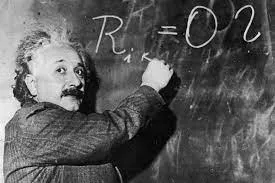
- Ignaz Semmelweis (1818-1865): An Austrian doctor, Semmelweis was the first to recognize the importance of handwashing in the prevention of disease. His research showed that the practice of simply washing hands between patients reduced mortality rates in hospitals by more than 50%. Unfortunately, his findings were largely ignored and even derided at the time.
- Mary Anning (1799-1847): An English fossil collector, Anning discovered a number of important fossils, including the first complete ichthyosaur skeleton and the first two pterosaur skeletons ever found. Her contributions to the field of paleontology were largely unrecognized during her lifetime, as she was a woman in a field dominated by men.
- Isambard Kingdom Brunel (1806-1859): An English engineer, Brunel is best known for his work on the Great Western Railway, a project that revolutionized railway travel in England. He also designed a number of other innovative structures, such as the Clifton Suspension Bridge and the Great Eastern steamship.
- Hatshepsut (1508-1458 BC): The fifth pharaoh of the eighteenth dynasty of Egypt, Hatshepsut was the second female ruler of ancient Egypt. She was a successful ruler and greatly expanded Egypt’s wealth and influence, while also commissioning a number of impressive building projects.
- Emperor Norton I (1818-1880): An eccentric American, Joshua Abraham Norton declared himself Emperor of the United States and Protector of Mexico in
- He was an unlikely celebrity in San Francisco, where his decrees and proclamations were taken seriously by both citizens and the local government.
- Sikhanyiso Dlamini (born 1982): The eldest daughter of King Mswati III of Swaziland, Dlamini is an outspoken advocate for women’s rights and education. She also founded the Swaziland Youth Council, which promotes youth-led initiatives throughout the country.
- Sirimavo Bandaranaike (1916-2000): The first female Prime Minister of Sri Lanka, Bandaranaike was elected in 1960 and served until
- She was re-elected in 1970 and served for a number of subsequent terms. Bandaranaike is credited with providing Sri Lanka with its modern infrastructure and public services.
- Josephine Baker (1906-1975): An American-born French entertainer and civil rights activist, Baker was known for her exuberant stage performances and her commitment to social justice. She was an active participant in the civil rights movement and was the first woman of African descent to star in a major motion picture.
8 Surprising Events That Defined World History
World history is full of events that have had a lasting impact on our world. From the fall of empires to the rise of modern nations, these events have shaped the course of human history. Here are eight surprising events that have had a defining influence on world history.
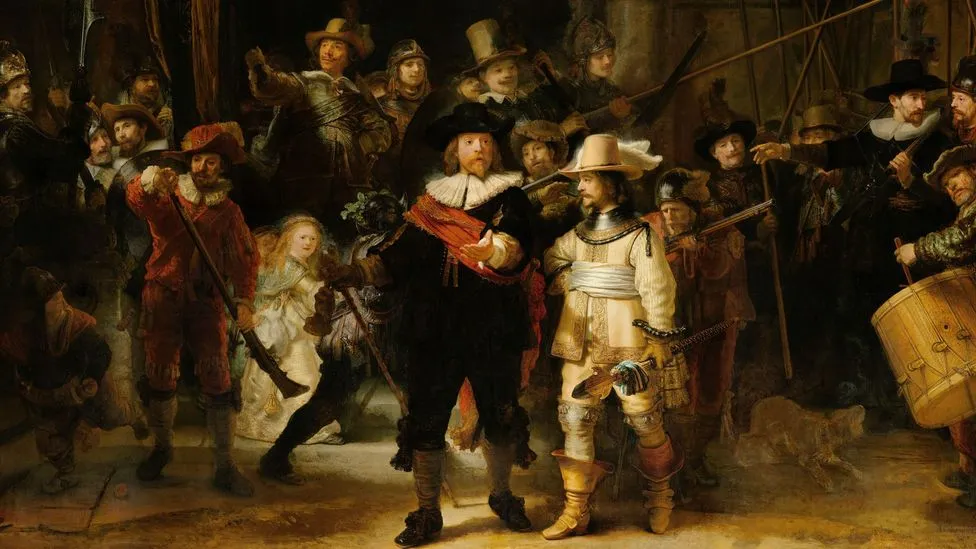
- The Black Death: This devastating plague, which originated in Central Asia in the mid-1300s, spread throughout Europe and killed an estimated 75 million people. The Black Death caused massive upheaval, leading to the end of the feudal system and the emergence of a more urbanized society.
- The Reformation: This religious and political movement, led by Martin Luther in 1517, challenged the power of the Catholic Church in Europe. It led to the rise of Protestantism, the Thirty Years War, and ultimately, the division of the Christian world between Catholics and Protestants.
- The Glorious Revolution: This event in 1688 saw the removal of the unpopular King James II from the English throne and the establishment of a Protestant monarchy. It is often seen as a key moment in the development of democracy and limited government in Britain.
- The French Revolution: This revolution of 1789 overthrew the monarchy and saw the rise of the revolutionary government of the National Assembly. It led to the Napoleonic Wars, the spread of liberal ideals, and the eventual establishment of the modern French Republic.
- The Industrial Revolution: This period of technological and economic development began in the late 1700s in Britain and spread throughout the world. It saw the rise of large-scale manufacturing, the development of modern transportation, and the emergence of a new middle class.
- World War I: This global conflict, which began in 1914, was the first “total war.” It led to the downfall of several empires, the Treaty of Versailles, and the emergence of the League of Nations.
- The Russian Revolution: This revolution of 1917 saw the overthrow of the Tsar and the rise of the Soviet Union. It led to the Cold War, the spread of Communism, and the eventual dissolution of the Soviet Union on December 31, 1991.
- The End of Colonialism: This period, which began in the mid-20th century, saw the end of most European empires in Africa, Asia, and the Americas. It resulted in the rise of new independent nations and the emergence of the Non-Aligned Movement.

Leave a Reply